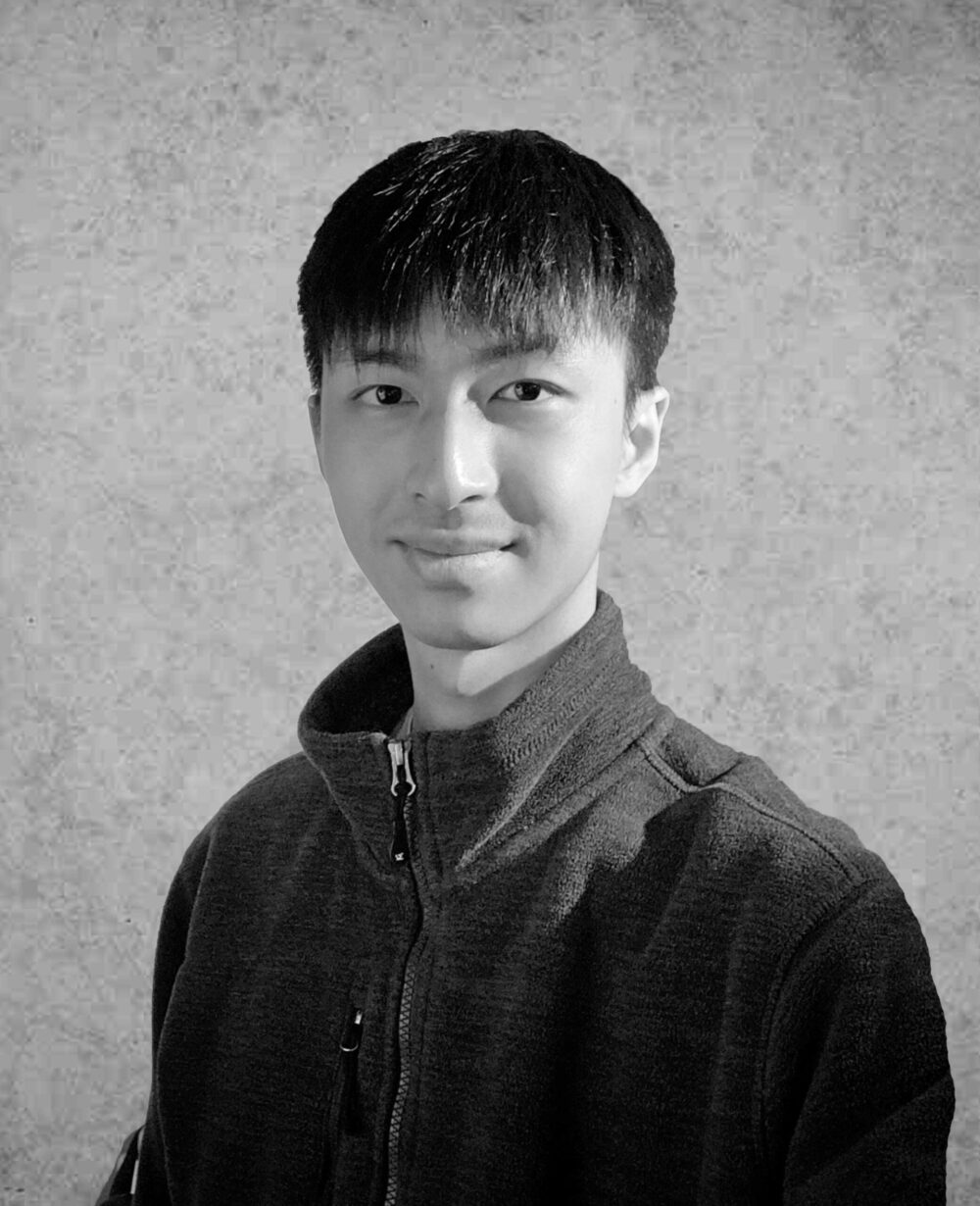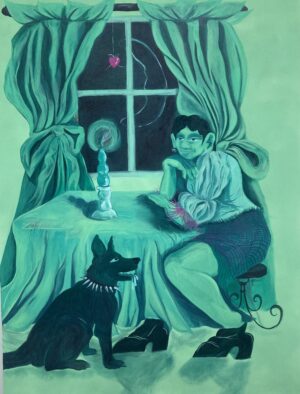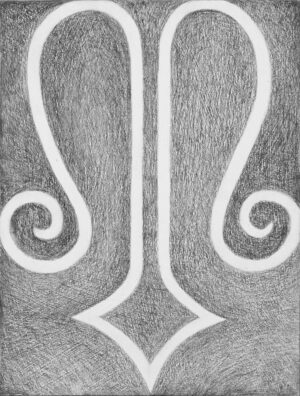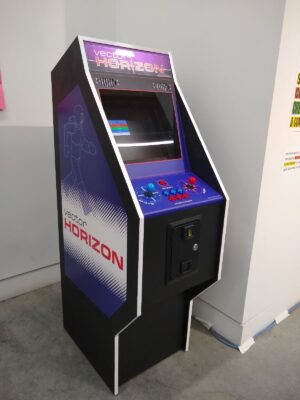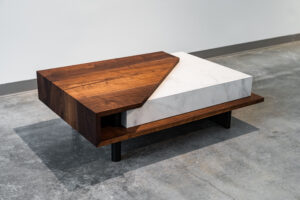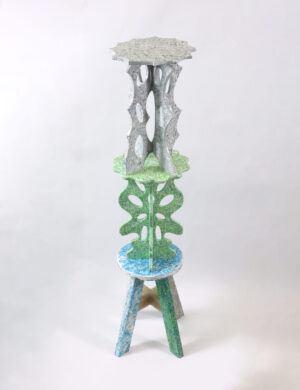Bag It Up
Kenneth Boediman
See it On Campus: Level 2
Visitor InfoThe Bag It Up exhibit is located across room D2315 (Boardroom).
More than just a Bag
Through the act of meaningful creation, Bag It Up is a movement that aims to make the sewing and repurposing experience open source and accessible for beginners and advanced creators alike. Once users acquire the confidence and skills to work with textiles, they will have the creative freedom and ability to further customize their bags, making it more personal to them, and eventually move on to make other products with textiles, not just bags.
Bag It Up extends the clothing’s lifespan, strengthens the user’s attachment to their clothes, empowers users with new making skills, all while reducing textile wastes and increasing the clothing’s emotional durability.



The Satchel
The Tote
The Messenger
Bag It Up contains instructions on how to transform your used clothing into three main urban bags. The different bag designs were selected by looking at trends in urban carry, as well as by simply observing the most popular types of bags that people would use on the streets or during daily commutes.
Each bag is also designed for different levels of complexity, with “The Satchel” bag being the easiest bag to construct and “The Messenger” bag being the more advanced.

Hand Sewing Templates
The hand sewing templates are a fun and easy introduction into the often daunting world of working with textiles. With one of these templates, you don’t have to worry about stitching crooked uneven lines as that will be taken care of by the template. Simply set-up the template to the clothing of your choice and get creating.

This is an early prototype demonstrating how new sewers can easily sew their first, straight line of stitch.

The final templates come in three different size options: Long, Medium, and Short. This gives users the flexibility to choose the appropriate tool size that will work best for their project. The final designs of the sewing templates were workshopped with participants of various skill levels and further refined through iterative prototyping and extensive testing.
The Website


The Bag It Up website was created as a way to share the bag designs to inspire new creators to start making. With a curated selection of sewing video tutorials, easy to follow instructions, and open-source sewing templates that users can download and print, the website contains various resources that would help their make their creation journey smoother. In addition to this, Bag It Up aims to host a community platform in the form of interactive blogs, where users can share their bag creations, offer and ask for advice, and engage with other members in the community.
To view this website,
or go to kboediman.wixsite.com/bagitup
The Bag It Up website is best experienced on a desktop computer.
Making an IMPACT
Drone Footage by Kelly M Lacy
The sustainability of Bag It Up
By making simple bags out of used clothing, Bag It Up aims to foster a longer relationship between you and your clothes by renewing the clothes’ functionality and style appeal through the act of repurposing. This in turn keeps clothes out of landfills, saves you money, and teaches valuable making skills that would empower Bag It Up users to be able to confidently create and work with textile materials in the future.
The beauty in Bag It Up is in using materials most of us already have in our homes. It’s super low cost, and highly customizable to your tastes and needs. To learn more, click here.
The Power of Togetherness

Embracing collective creativity
Through social media posts and blog updates, users can share their Bag It Up creations and stay connected with one another to further inspire and spark conversations around the act of making and repurposing. This community space will also provide opportunities for users to share sewing tips and tricks with each other, engage with new friends, and overall, foster a healthier relationship with our used clothing that not only benefits us, but our planet as well.

The Design Process
Sketch Iterations


Simple illustrations like this would often be used for me to quickly convey and communicate my ideas to others. Here, I am visualizing the various possibilities of what a used piece of clothing can potentially become. This illustrative style would later inform the visual language of the bag making instructions. To view these instructions, click here.
Material explorations



Part of my material exploration also consisted of playing with unconventional ways to attach fabric together without the use of sewing or tying. This proved to be an incredibly difficult task and I had to refocus my project intentions as this became a whole separate project in itself.
Workshopping
In order to test the feasibility of the hand sewing templates, I held a series of workshops in which participants were invited to try out the template prototypes to make a functional tote bag out of used clothing. Participants were also invited to bring in their own used clothing.

Workshop Objectives
Goals: Using the provided instructions, make a tote bag using the hand sewing templates in two hours or less.
Outcomes: Participants were able to successfully complete a tote bag in two hours.
Feedback: Make instructions more clear by adding step numbers, add symbols on the template to help users navigate the product more easily, reduce the size of the templates, and include different template size options.


Here is a workshop participant posing with their successfully completed tote bag.

Iterative Prototyping



To view the design process in greater depth, click here to download the full project process document.
Next Steps
Moving forward, Bag It Up plans to start populating the website’s blog with educational content and inspiring projects on sustainability, more specifically in the field of textiles. In addition to this, Bag It Up aims to build a strong, community oriented online presence where people can share their Bag It Up creations through Instagram, TikTok, Youtube, and the Bag It Up website’s own interactive blogs.
Acknowledgements
Thank you so much to our professors Christian Blyt, Sophie Gaur, Keith Doyle, and Louise St. Pierre for their support and guidance throughout this long project, with special thanks to my mentors, Heather Young, Diane Espiritu, and Pete Hill for Thank you so much to our professors Christian Blyt, Sophie Gaur, Keith Doyle, and Louise St. Pierre for their support and guidance throughout this long project, with special thanks to my mentors, Heather Young, Diane Espiritu, and Pete Hill for sharing their knowledgeable insights in the bag making industry. Thank you to the models Gaby Abouzeid, Liam Haigh, Mashu Higa, Anna Ivasyshyna, Hunter Milroy, Megan Pereira, Jasper Rodrigues, Autumn Stewart, and Paula Torres for giving the bags so much character and personality and really bringing the bags to life. It was so much fun shooting with you all. I would also like to thank all my friends and cohort for their continuous feedback and encouragement. They too, had a big impact in helping shape the outcome of this project. Thank you to everyone who donated their used clothing and fabric scrap materials to help make this entire project possible. Lastly, I would like to thank my family for all that they do, for always being there for me, especially when I need them most, and for giving me the privileged experience of being able to study and live on the unceded and ancestral territories of the kʷikʷəƛ̓əm (Coquitlam), xʷməθkʷəy̓əm (Musqueam), Sḵwx̱wú7mesh Úxwumixw (Squamish) and səl̓ilw̓ətaʔɬ (Tsleil-Waututh) peoples.
